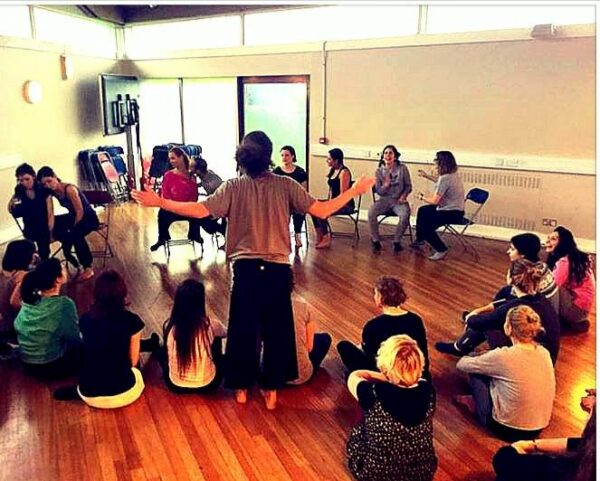
Course description
Course overview and purpose:
Outdoor Adventure Education is an innovative educational approach that promotes learning and development through adventure-centred experiences. Adventure means challenge, uncertainty, new experiences, nature immersion, involvement of head, heart and hand, and relationships with others. In a complex and uncertain social and cultural context, adventure education seems to be a great learning opportunity for both youth and adults. Adventure education differs from restorative or recreational outdoor activities in its crucial role of reflection and conceptualisation during the learning process.
Based in an outdoor training centre located in a rural setting, the course provides an immersive and experiential programme. The main event of this course is a two-day outdoor expedition, a great learning experience to experiment directly in the experiential process. We will hike in a natural area (Colli Euganei) and we will spend a night outdoors, exploring personal and group resources outside of our comfort zones. After the outdoor experience, we will reflect on and discuss personal insights, ideas, theories and methodology for developing outdoor adventure education in the school context. You will also receive some practical tools, participate in case histories discussion and have the opportunity for sharing and networking with passionate colleagues.
Learning outcomes:
- Know the fundamental aspects of theory and method of adventure education
- Discuss how to integrate outdoor adventure activities and processes in your own professional practice and community
- Understand different models of using outdoor learning for students and groups development
- Be able to plan specific activities connected with your context and objectives
- Raise awareness about your personal relationship with nature and adventure education
- Gain tools and strategies for providing learning experiences and reflection on those experiences

Course description
Course overview and purpose:
Promoting inclusive education is one of the strategic objectives for co-operation in education and training at the EU-level. The first principle of the European Pillar of social rights underlines that: “Everyone has the right to quality and inclusive education, training and life-long learning in order to maintain and acquire skills that enable them to participate fully in society and manage successfully transitions in the labour market”. Inclusive education is a way to give all children a chance to go to school, learn, and develop the skills they need to thrive.
The course will be made up of activities, discussions, and self-reflection moments to define what inclusion means and why it is important in education. It will give you the resources and the competencies to prepare and implement inclusion processes within your class and equip you how to tailor lesson plans in consideration of the needs of all students. Moreover, the possibility to talk to and share best practices with teachers of other countries will enable you to learn how inclusion is perceived and implemented in other school systems around Europe. You will discuss and learn new management approaches, strategies, methodologies, and instruments observed in educational contexts with various legal and institutional backgrounds. Finally, find out about what actions, toolkits, and initiatives the Commission is implementing in this field. Ideally, this course should foster increased sharing and learning partnerships and potentially form reliable partnerships leading to possible future Erasmus+ projects.
Participants will learn from each other and share best practices and ideas about inclusion, so that the impact can be felt in your classroom and beyond!
Learning outcomes:
- Learn the key principles of inclusion and inclusive education
- Understand how to create an inclusive environment for all your students
- Acquire information on how to tailor lessons plans to the individual needs of your students
- Develop resources for the implementation of inclusion processes within your school and class
- Share best practices with the other participants and learn how inclusion is implemented in other European countries
- Find out about co-operative opportunities with other European schools and institutions

Course description
Course overview and purpose:
In teaching students about biodiversity, you help students understand biodiversity as a measure of planetary health.
What resources can you use to let students experience markers of biodiversity, both within individual ecosystems and of the interconnectedness for the planet as a whole? Learn more about biodiversity teaching activities, lesson ideas, film clips, career resources, background information, practical tips and suggested teaching strategies through a full immersion experience about biodiversity.
Join us and visit the unique Padova Biodiversity Garden: more than 1,300 plant species in uniform climatic environments in terms of temperature and humidity, emulating the conditions of the planet’s biomes in an itinerary that also takes in anthropological items and interactive exhibits!
Outdoor lessons will take place in the Natura 2000 Sites of Community Importance inside the Euganean Hills and Po Delta Regional Parks in order to observe and have a direct experience of different plant species and different environments.
Debriefing those direct-learning experiences is a such a great opportunity to discuss openly, practice and exchange ideas with teachers interested in the topic of biodiversity in the classroom and be engaged with a meaningful process of mutual curiosity and collective reflections.
Learning outcomes:
- Improve knowledge about Biodiversity
- Develop ideas on how to introduce biodiversity concepts in other teaching fields such as literature, geography, arts and maths
- How to produce original thematic maps concerning outdoor activities
- Raise awareness about your personal relationship with nature and sustainability education
- Build empowerment in teachers and classrooms in challenging situations
- Improve knowledge to shape effective hands-on lessons to teach biodiversity
- Implement new teaching resources immediately upon finishing the course
- Be able to plan specific activities connected with your context and objectives

Course description
Course overview and purpose:
The course is designed for teachers in diverse settings who are interested in teaching content and language simultaneously using the Content and Language Integrated Learning (CLIL) method.
Through a combination of interactive group activities and experiential learning exercises, participants will acquire proficiency in the basics of CLIL methodology and gain practical knowledge of how to design and teach CLIL lessons effectively. This course will equip participants with techniques and methodologies for teaching a subject through the medium of a foreign language with the ultimate goal of contributing to students’ linguistic, cultural, and cognitive development. Participants will benefit from a combination of practical sessions, theoretical input, case discussions, and best practice sharing.
This course is designed to enhance the creation of interactive classroom materials that promote the improvement of students’ linguistic abilities and their intercultural proficiency. The goal is to explore teaching methodologies that foster inclusivity in the classroom, which encourages active participation and enhances critical thinking skills that are relevant in the 21st century.
Teachers will be given the opportunity to network and explore best practices in the field of CLIL with colleagues from different European countries.
Learning outcomes:
- Ability to design effective CLIL lesson plans
- Improved teacher confidence in giving lessons in a second language
- Engage in the exchange of best practices
- Development of CLIL-based materials to be used in the classroom
- Improvement in performance assessment and evaluation of CLIL lessons
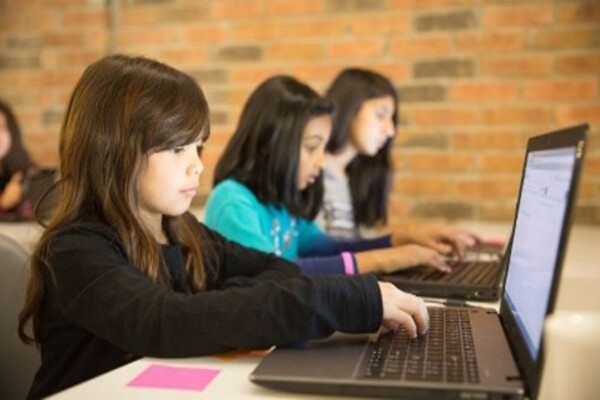
Course description
Course overview and purpose:
Do you know the difference between coding and computational thinking skills when it comes to classroom practice and instruction? Join this course to learn new concepts, practices and perspectives about coding and computational thinking.
The course is about what coding and computational thinking are, and why students can benefit from them, while strengthening their problem-solving skills. The course will outline some of the online tools used to teach coding, such as Scratch and other educational resources, such as CoSpaces Edu. You will learn how to use these tools in a creative and engaging way through hands-on activities and exercises to develop projects and lessons for your students. Moreover, the focus of these activities will also be to understand how they can help foster computational thinking and how to explain to your students the steps required to solve problems as a computational thinker. In addition, you will have the chance to discuss those topics with colleagues from other schools in Europe.
Learning outcomes:
- Understand what coding and computational thinking are, what the benefits are, and how you can use them in your class
- Familiarise yourself with computational thinking and explore its use in everyday-life processes
- Learn coding new concepts, practices and perspective
- Feel confident in developing projects on Scratch
- Create interactive virtual space with CoSpaces Edu
- Design coding and computational thinking lessons plans
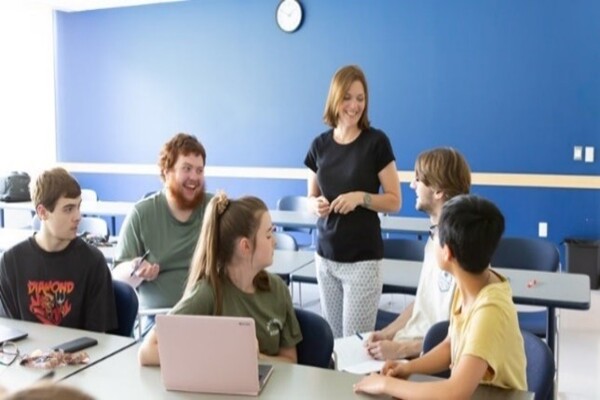
Course description
Course overview and purpose:
This course helps you review three fundamental areas of teaching. The three areas which will be covered by the course are creativity, project-based learning, and using media. The course will be made up of practical activities, group discussion, and moments of reflection that will allow you to learn how to integrate creativity in your lesson plans, how to apply the project-based methodology to enable learning, and how to use media in class to engage your students. Some examples of the topics that will be covered are: how to use projects to promote skill development, how to foster creativity among your students, and the benefits of using technologies in the class.
Learning outcomes:
- Improve competencies in creativity, project-based learning, and using media in class, such as fostering creativity among the students, the use of projects to promote skills development, and much more
- Learn new methods and tools that can be used when preparing for, and working in, a class
- Enhance reflection and share opinions on practices and competencies used by the teachers
- Share best practices with other teachers

Course description
Course overview and purpose:
What is education for sustainable development? And what is the best way to integrate it into your lessons? If you want to find answers to these questions, then this is the perfect course for you!
The course aims to raise awareness about education for sustainable development, what the contents are and why it is important to address it at school. The course will focus on best practices, case studies, and existing projects to give ideas on how education for sustainable development can be implemented in your class. You will discuss the contents with teachers from all around Europe and try practical activities to share opinions and learn how to create innovative and creative lesson plans on the topic.
Learning outcomes:
- Improve understanding on what education for sustainable development is and what its contents are
- Strengthen the ability to use innovative methodologies in your class
- Learn the tools and practical activities that you can use to create engaging and creative lessons based on education for sustainable development
- Acquire information on best practices and projects on education for sustainable development and share your experience with the other participants

Course description
Course overview and purpose:
Educational management is the process of planning, organising, and directing educational institutions. Paired with good leadership, it is fundamental to ensure the quality of the education of the students and the day-by-day functioning of the institution.
With this course, you will gain new methods and tools to help you with the general management of a school, while focusing also on leadership and what it means to be a leader. The course will have practical activities, discussions between participants, and theoretical introductions on topics like process-planning, the management of human resources, and how to collaborate effectively in the school. In this way, you will strengthen your management and leadership skills and will have the possibility to learn new best practices and create new links with your peers in other countries.
Learning outcomes:
- Learn key management competencies like process-planning and human resources management
- Understand new practices and raise awareness of the role of leaders and how good leadership strategies can help your organisation
- Acquire best practices to grow as a manager and to ensure the well-being of your organisation
- Share knowledge and opinions with other education managers

Course description
Course overview and purpose:
This course is designed to equip participants with the knowledge and skills needed to teach English as a global language effectively. Participants will delve into the historical and social context of English as a global language, examining its spread and influence over time. They will also explore the varieties of English beyond the US/UK binary, gaining a deeper understanding of their impact on teaching and learning.
Another key focus of this course is the influence of multiculturalism and multilingualism on the teaching and learning of English. Participants will examine the various cultural and linguistic backgrounds of English language learners and how these factors affect their learning experience. They will also learn how to apply a multicultural and multilingual lens to their teaching practices, allowing them to create a more inclusive and supportive learning environment.
Through practical case-study based exercises, project work, peer learning and/or discussions, group activities, workshops, role plays, simulations and/or virtual learning environments, participants will explore the historical and social context of the globalisation of English, the current state of English as a global language, the varieties of English and their impact on teaching and learning and the influence of multiculturalism and multilingualism on teaching and learning.
Learning outcomes:
- An increased understanding of the complexities of English as a global language
- The ability to apply a multicultural and multilingual lens to teaching practices
- Enhanced cross-cultural communication skills
- Increased awareness of the varieties of English and their impact on teaching and learning
- The ability to share best practices and disseminate ideas with colleagues
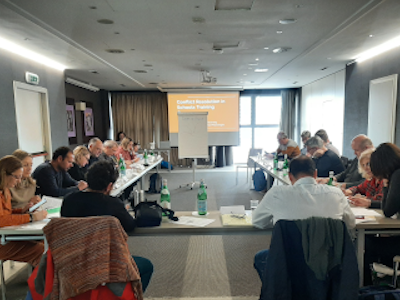
Course description
Course overview and purpose:
This course is designed to equip educators with the necessary tools and knowledge to foster global citizenship competences through conflict resolution skills. Aligned with the education policy references for key competences in lifelong learning, including the 2018 EU Council Recommendation, this course places emphasis on the Citizenship competence. Participants will develop the ability to act as responsible global citizens, engaging fully in civic and social life while understanding social, economic, legal, and political concepts.
In addition to the Citizenship competence, this course recognises the significance of interpersonal skills as a vital complement. Specifically, it focuses on enhancing interpersonal communication, dialogue, mediation, and conflict resolution skills within macro and micro frameworks. By utilising innovative approaches such as project-based learning, role plays and debates, reflective practice and collaborative learning, this course provides a comprehensive package of resources to positively manage conflicts that arise within educational environments, as well as conflicts at the societal and international levels.
The course adopts a global perspective on citizenship education, as defined in the Sustainable Development Goal 4. It emphasises the development of global citizenship competences through the utilisation of conflict and conflict management skills. The course empowers educators to effectively address conflicts, nurturing them as responsible global citizens who can, in turn, inspire and guide their students towards becoming active and engaged global citizens, with the significant outcome of contributing to a sustainable and inclusive world.
Learning outcomes:
- Demonstrate proficiency in applying conflict resolution strategies within educational settings.
- Exhibit a comprehensive understanding of global citizenship and its significance in fostering a sustainable and inclusive world.
- Apply innovative cognitive approaches to address conflicts and promote responsible global citizenship.
- Utilise effective conflict management techniques to create positive learning environments in schools and society.
- Inspire and guide students in developing their own global citizenship competences.

Course description
Course overview and purpose:
Are you a teacher looking to improve your basic English language skills in a dynamic and communicative way? Then this is the perfect course for you! You will learn how to use English so that you can write emails, use new vocabulary, revise grammar and improve your speaking skills! Our trainers are equipped with innovative, creative and interactive teaching methods: learning will be enjoyable, easier, faster, stimulating and fun! You will explore the local culture and history and learn communication survival techniques.
The course ensures the right balance between grammar topics and conversational activities and will reflect the level, skills and topics relevant to the group. Content is adjusted based on participant language levels both before and during the course, reflecting its nature as a general English course. Additionally, please note that certain course session dates may include adult participants from the general public, enriching the learning experience with diverse perspectives and interactions.
Throughout the course, we focus on essential topics to advance your English language skills, empowering you to communicate confidently in various settings.
The “English language skills for teachers – Level 1” course is for participants who have Basic (A1/A2) or Pre-intermediate (B1) language levels.
Learning outcomes:
- Improve your English vocabulary, grammar, pronunciation, and conversational skills
- Build greater confidence in using the English language and awareness of intercultural communication concepts and related activities
- Improve your discussion skills on a range of social and cultural themes
- Explore amazing local culture and history

Course description
Course overview and purpose:
Are you a teacher looking to further develop your upper-intermediate to advanced English language skills? Then this is the perfect course for you! You will refine your ability to write persuasively, articulate with precision, master complex grammar structures, and engage fluently in discussions. Our trainers are equipped with innovative, creative and interactive teaching methods: learning will be enjoyable, easier, faster, stimulating and fun! For example, activities may include analysing and debating complex issues, interpreting advanced texts, delivering presentations, and engaging in simulated interactions.
The course maintains a balanced approach between advanced grammar topics and practical conversational activities, and will reflect the level, skills and topics relevant to the group. Content is adjusted based on participant language levels both before and during the course, reflecting its nature as a general English course. Additionally, please note that certain course session dates may include adult participants from the general public, enriching the learning experience with diverse perspectives and interactions.
Throughout the course, we focus on essential topics to strengthen your English proficiency, empowering you to communicate confidently in various settings.
The “English language skills for teachers – Level 2” course is for teachers who have Upper-intermediate (B2) or Proficient (C1/C2) language levels.
Learning outcomes:
- Demonstrate advanced proficiency in English, including mastery of complex grammar structures, expanded vocabulary, and refined pronunciation skills
- Develop ability to communicate fluently and confidently in various contexts
- Build greater confidence in using the English language and awareness of intercultural communication concepts and related activities
- Improve your discussion skills on a range of social and cultural themes
- Gain a deeper understanding of intercultural communication dynamics and strategies
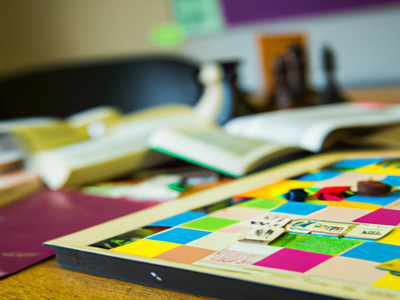
Course description
Course overview and purpose:
The “Gamified learning: tools and techniques for teachers” course is an innovative course designed to empower educators with the skills to transform their teaching through gamification. In an ever-changing educational landscape, traditional methods often fall short of engaging students. This course leverages the power of gamification to create dynamic, interactive, and effective learning environments.
The course emphasises active learning, collaboration, and the creation of meaningful educational experiences. Participants will explore game design principles, learning how to integrate these into their classrooms to foster critical thinking, problem-solving, and teamwork.
While focused on tools and techniques, this course critically examines the pedagogical principles of gamification to ensure they support teaching environments that encourage exploration, inquiry, and discovery. Through hands-on activities and collaborative projects, teachers will learn to design gamified lessons that promote intrinsic motivation and cater to diverse learning needs. Participants will examine how to effectively manage the dynamics of reward systems, achievements, progress tracking, and potential classroom competition, aiming to promote meaningful student engagement.
By the end of the course, participants will be equipped to create student centered learning experiences that inspire and motivate their students.
Learning outcomes:
- Define the key principles and terminology of gamification in an educational context.
- Assess the advantages and potential obstacles of implementing gamification in various classroom settings.
- Learn how to promote active, self-directed learning where students build knowledge through experience and reflection.
- Create lesson plans that incorporate game mechanics to enhance student engagement and foster a deeper understanding of content.
- Demonstrate proficiency in using digital platforms to create engaging educational experiences.
- Effectively integrate gamification techniques into classroom management and instructional practices.
- Create a classroom environment that promotes teamwork, inclusivity, and positive competition through gamification.

Course description
Course overview and purpose:
In education, media literacy promotes awareness of the influence media has on all aspects of our lives, from what we buy to how we vote, and how we can take an active stance towards both consuming and creating media. A prerequisite of media literacy is being able to think critically and, thus, recognise and evaluate what you read, see, and hear. Teachers can support students in developing critical-thinking skills that allow them to effectively evaluate content from a variety of media sources.
The course will have both theoretical units and group activities through which you will build frameworks and tools to support students develop critical-thinking skills and the ability to evaluate the information they are exposed to. Thinking tasks, logical fallacies, and critical-thinking tests can be used to develop the ability to logically analyse assumptions, arguments, deductions, inferences, and interpreting information. Those critical-thinking teaching resources are thus instrumental in checking for facts, bias, and fake news, to recognise how – and why – a media message is constructed, as well as its impact on the world, and to learn how to create media responsibly. Role-playing models for divergent thinking such as “Six Thinking Hats” are great tools to develop creative problem-solving and to make connections between the class materials and media they consume at home, to use their new skills to better understand historical events, and produce media in inventive formats. When students are confident in these abilities, they are better at research, writing, and communicating, all of which are vital skills for students today. Find out more about lesson plans, videos, downloadables and games organised according to a few key topic areas, such as interpreting media, media creation, and media manipulation, and discuss with your colleagues from all over Europe to better understand and practice media literacy by teaching critical-thinking!
Learning outcomes:
- Gain information on what media literacy and critical thinking are
- Improve understanding and acquire new methods and instruments on how to evaluate and create information
- Learn how to increase critical-thinking skills
- Understand how to share the competencies gained in the course with the students
- Recognise why critical-thinking and media literacy are especially important when it comes to sensitive issues

Course description
Course overview and purpose:
The 21st century classroom has brought about new trends and technological advancements that have changed the way teachers and students see education. “Innovative 21st Century Classrooms: Practical Strategies and New Technologies” is a course aimed at guiding teachers and school staff on incorporating new technologies and practices in their teaching. The course will be a process of principled reflection where participants will engage in critical enquiry regarding their own practices. In parallel, they will analyse and contextualise new technologies and practices in the classroom, and learn more about the impact of the integration of new technologies, new practices in education.
Learning outcomes:
- Participants will understand the latest developments in education and will be able implement the best practices and technology
- The course will help establish links and partnerships between like-minded colleagues looking to innovate and develop their teaching practices
- Participants will critically evaluate their own teaching practices, recognising areas of improvement to inform future teaching activities
- Participants will leave the course feeling confident in developing student-centered best practices in their current teaching roles
- Participants will apply evaluation techniques to assess student learning outcomes, providing a more effective framework for measuring progress.
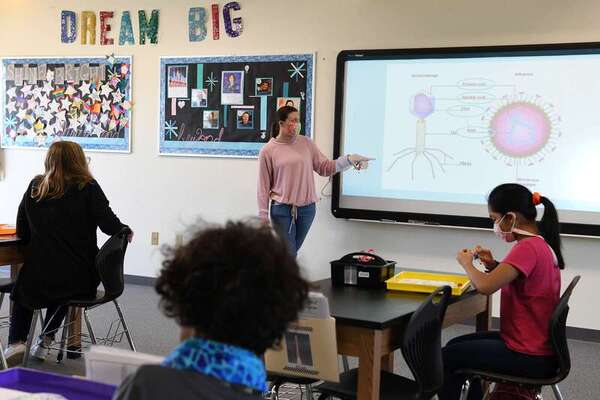
Course description
Course overview and purpose:
Innovative teaching is more than introducing the latest and greatest technology into the classroom. Instead, it is the self-reflective process of proactively introducing new teaching strategies and methods into the classroom. The purpose of introducing innovative teaching methodologies is to solve real problems in a fresh and simple way, to improve student achievements and to promote equity.
The course aim is to raise awareness about new methodologies such as the flipped classroom, co-operative learning, project-based learning, and inquiry-based learning. You will learn how to use them in class, and what the differences are. You will be engaged in practical activities and discussions and find out about best practices and why they work.
So, tell us more about why you need to innovate your teaching practice and we will suggest the best methodology to adapt to your context!
Learning outcomes:
- Acquire information on the latest teaching methodologies and strategies such as the flipped classroom, co-operative learning, project-based learning, and inquiry-based learning
- Understand the differences between different teaching methods
- Develop a wide range of new ideas, strategies and lesson plans based on the new methodologies to use with your students
- Share your opinion about your “classroom problem” and discuss how to use new methodologies in your context with other teachers

Course description
Course overview and purpose:
This exciting and intensive Italian language course is offered as a one-week full immersion in Italian language and culture.
The course aims to improve fluency and accuracy in Italian through experiential language-learning methods and practice, as well as cultural immersion in Italy.
You will build your first-person experience in a safe and supportive environment followed by observing, absorbing and activating authentic communication practices directly on the spot, supported by our local professional tutors.
The course ensures the right balance between grammar topics and conversational activities. Our conversation labs and games will make learning easier, faster, stimulating and fun, and you will enjoy our roleplay simulations.
Examples of interactive activities:
– cooking class
– local school tours
– visits to local companies
– visits to local markets
Finally, you will take part in cultural activities, and go on guided tours and excursions showcasing Italian culture.
The course is for teachers who have Intermediate (B1/B2) or Proficient (C1/C2) language levels.
Learning outcomes:
- Improve fluency and accuracy in Italian
- Identify experiential learning resources to use in the classroom
- Become more comfortable with teaching in Italian to non-native Italian speakers
- Learn about the Italian culture
- Acquire direct experience of learning activities that involve the four basic skills (reading, writing, listening, and speaking)
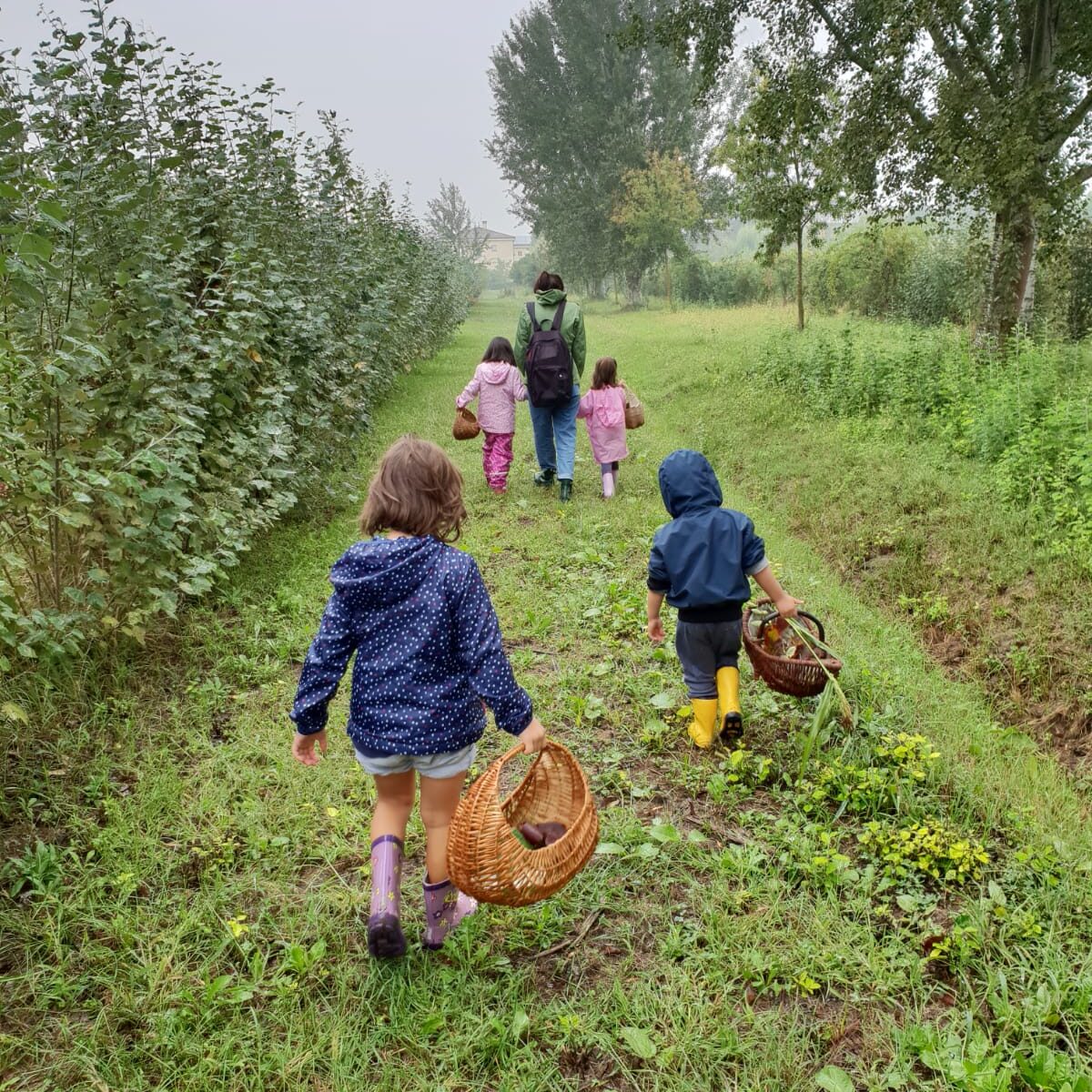
Course description
Course overview and purpose:
Outdoor Education is one of the most innovative educational approaches in the European context, as well as worldwide. New generations of children and youth have few opportunities for direct and authentic experiences in nature, making outdoor education a good solution to the challenge of reconnection to the natural world. Moreover, the outdoor experience can create great opportunities for meaningful learning experiences, both for students and for teachers.
We can teach and learn curricular subjects outdoors, grow social and personal skills and develop a sense of wonder and responsibility for the natural world.
Based in an outdoor training centre located in a rural setting, the course provides an immersive and experiential programme. In this course you will find an introduction to Outdoor Education theory and methodology, some practical tools, personal and professional insights and the opportunity for sharing and networking with passionate colleagues.
Learning outcomes:
- Know the fundamental aspects of the theory and method of outdoor education
- Understand how to integrate outdoor activities and processes in your own professional practice
- Understand how to use outdoor learning for soft skills development
- Be able to plan and project outdoor learning programmes
- Raise awareness about your personal relationship with nature and education in nature
- Gain tools and strategies for providing outdoor activities and reflection

Course description
Course overview and purpose:
This course helps you review three fundamental areas of teaching. The three areas which will be covered by the course are lesson planning, material development, and classroom management. The course will consist of practical activities, group discussion, and moments of reflection that will allow you to learn how to create engaging lessons, understand how to better adapt the material to the needs of your students, and what has to be done to successfully manage the students and their motivation. Some of the topics that will be covered are, for example, classroom management techniques, how to assess the progress of the students, and how to identify the aims of the lessons so that you will be able to cover a good deal of relevant aspects to improve in the aforementioned areas.
Learning outcomes:
- Improve competencies in lesson-planning, material development, and classroom management, such as assessment of progress, identifying the aims of the lessons, and much more
- Learn new methods and tools that can be used when preparing for, and working in, a class
- Enhance reflection and share opinions on practices and competencies used by the teachers
- Share best practices with other teachers

Course description
Course overview and purpose:
The nature of contemporary education requires project management skills in order to effectively plan, organise, and execute teaching projects. To address this need, our course on project management for educational projects in educational settings will equip participants with the skills, tools, and techniques needed to successfully manage educational projects.
This course is designed for teachers and school staff interested in developing skills in project management for educational projects.
The objective is to provide a comprehensive understanding of general project management principles as well as funding proposals, building and managing pilots, and tools and techniques for managing projects. Our course is designed to be interactive, experiential, and participatory, enabling participants to learn from real-world case studies, hands-on projects, group activities, and peer learning.
Participants will learn project management tools and techniques in the context of educational settings, and will be able to apply their new knowledge to their own projects.
Our goal is to inspire and enable participants to design and manage educational projects that nurture creativity, innovation, and positive change, while also helping them build networks and establish lifelong learning communities.
Learning outcomes:
- Participants will understand general project management principles and techniques operationally and strategic management.
- Participants will acquire skills for building, organising, and managing pilot projects in educational institutions.
- Participants will acquire experience in proposal writing for funding educational projects.
- Participants will be able to design and execute projects using innovative techniques and technologies.
- Participants will develop monitoring and evaluation skills for project management.

Course description
Course overview and purpose:
Social and emotional learning (SEL) is a critical component of education, as it not only helps students to develop important life skills, but also improves academic performance, reduces negative behaviours, and contributes to positive classroom environments. Throughout this course, teachers will learn about the key components of SEL, including self-awareness, self-management, social awareness, relationship skills, and responsible decision-making. Participants will gain the skills and strategies needed to incorporate socio-emotional learning into their existing curriculum and build a learning environment that supports emotional well-being. They will explore evidence-based practices for teaching these skills, such as mindfulness exercises, reflective journaling, and role-playing activities.
Through workshops, hands-on activities, and collaboration, participants will develop their competencies in socio-emotional learning and learn effective techniques to support their students’ overall growth and development.
By the end of this course, educators will be better prepared to support their students’ social and emotional growth, and to create more effective and engaging learning environments.
Learning outcomes:
- Participants will gain a comprehensive understanding of the role of SEL in the classroom and its considerable benefits.
- Participants will learn innovative and effective techniques to foster socio-emotional development among students.
- Participants will acquire practical strategies and a focus on prevention and early intervention.
- Participants will develop their pedagogy and methodology, and acquire evaluation and self-reflection techniques.
- Participants will form a network of educators that can support one another in their work towards developing socio-emotional learning.
Course description
Course overview and purpose:
The training course “Social theatre and creativity for inter-cultural dialogue” aims to provide participants with new skills and competencies, based on theatre arts and creativity, that will support their work in the classroom with their students.
Nowadays formal education is challenged by the new reality of a multi-cultural society, and teachers have to be ready to face such challenges in a creative way, despite their specific subject of expertise. The training course will provide participants with concrete tools, to be applied immediately in the classroom, that will support them in dealing with diversity, in promoting inclusiveness in classroom, and in fostering a “think-out-of-the-box” approach.
Learning outcomes:
- Basic knowledge of inter-cultural pedagogy
- New competencies in inter-cultural dialogue
- New tools based on theatre arts and creativity
- Discover new inter-cultural experiences
- Knowledge of EU education programmes
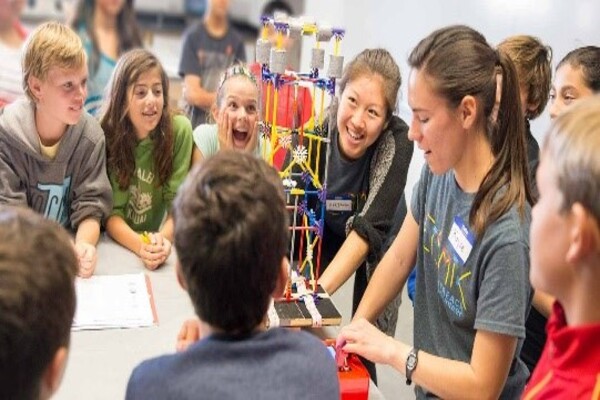
Course description
Course overview and purpose:
STEM (Science, Technology, Engineering, and Math) is a multi-disciplinary approach to teaching. The STEM approach encourages discussions and problem-solving among students, thus making them more self-confident and motivated to solve problems more efficiently.
If you are interested in learning how to prepare inspiring and relevant lessons based on the STEM approach, this is the perfect course for you! The course will have practical activities and discussions on the tools that can be used to make the STEM disciplines creative and engaging (for example Scratch, Arduino, etc.), and how to create lesson plans integrating different aspects of STEM education such as coding, virtual reality (VR), robotics, and augmented reality (AR) into your class. This course will give you a better understanding of STEM and how to transform your teaching strategy!
Learning outcomes:
- Understand what STEM is and what its benefits are
- Learn how to create a lesson plan based on STEM
- Learn how to adapt previously used materials to create a STEM lesson
- Acknowledge all the different ways in which STEM education can be implemented in everyday learning
- Develop a strategy about how to present new STEM materials and lessons in an engaging way
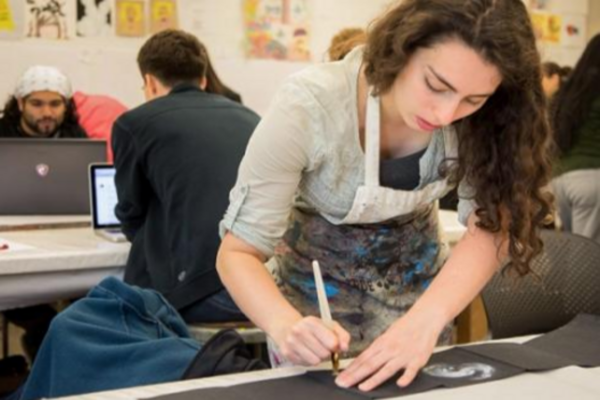
Course description
Course overview and purpose:
Does your art school need to be more inter-disciplinary and international?
Art education is the core of many schools all around Europe. In these schools, artistic disciplines such as art, dance, drama, media and music meet more academic-focused disciplines. The synergy between these disciplines is essential to maintain a high qualitative standard in education, but also to nurture the talents and interests of students.
The course incorporates workshops and meetings with local artists and organisations involved in art education as a way to learn new resources to use at school. Every session will also have a debriefing and coaching aspect, where the participants can discuss and identify action plans to implement at their schools.
To help the schools get in touch with other local and international organisations, you will attend practical sessions about EU digital tools (such as the European School Education Platform and Selfie for teachers), and other online platforms which can be used to connect with other European and local entities.
Join our course to learn new resources and be inspired by how other local and international organisations deal with art education projects!
Learning outcomes:
- Identify best practices for running art projects in an education setting
- Improve the knowledge in art education
- Learn about EU digital tools and other online platforms
- Be able to use the techniques and methodologies learned
- Be able to connect with other schools in Europe and foster collaborations and partnerships with other international and local art institutions

Course description
Course overview and purpose:
In an era where climate change poses one of the greatest challenges to our planet, the role of teachers is more critical than ever. The course “Teaching climate change: empowering educators to inspire action” is designed to equip teachers with the knowledge, tools, and strategies needed to effectively teach climate change and inspire students to become proactive stewards of the environment.
Throughout this course, you will delve into climate change, explore its wide ranging impacts, and learn about the innovative solutions being developed to address it. More importantly, you will gain practical experience in designing and implementing climate-focused curricula that are both informative and engaging. The course will provide a wealth of resources, including lesson plans, hands-on activities, and access to digital tools, all designed to facilitate interactive and impactful learning experiences.
By the end of this course, teachers will be well-prepared to integrate climate change education into their teaching practice, foster critical thinking and problem-solving skills in their students, and inspire them to take action both within and beyond the classroom. Together, we can empower the next generation to rise to the challenge of climate change and contribute to a healthier, more resilient world.
Learning outcomes:
- Identify and describe the environmental, social, and economic impacts of climate change on local, national, and global scales.
- Develop and deliver engaging, interdisciplinary lessons that incorporate climate change topics.
- Utilise hands-on activities, experiments, and interactive tools to facilitate student understanding of climate issues.
- Create a comprehensive curriculum that integrates climate change education across various subjects.
- Inspire and support students to initiate and lead climate action projects within their schools and communities.
- Collaborate with fellow educators to share resources, strategies, and best practices for teaching climate change.

Course description
Course overview and purpose:
In today’s rapidly evolving educational landscape, Artificial Intelligence (AI) is transforming education by offering innovative solutions that enhance teaching efficiency and student learning. The course, “Teaching with AI: tools and strategies for teachers,” is specifically designed for educators who wish to understand and integrate AI tools into their teaching practices. This course provides a comprehensive introduction to AI and explores tools to support teaching, with a focus on personalised learning, student engagement, assessment and feedback, classroom management, and media creation. The specific tools covered may vary depending on participants’ needs and the educational setting, so we encourage you to enquire about the best options for your context. The course will also address the ethical considerations of using AI in education, ensuring that teachers are equipped to make informed decisions about incorporating AI into their classrooms.
Each session builds upon the previous one, ensuring a thorough understanding of how AI can be effectively employed across various educational contexts. The course will culminate in a final project, where participants will apply their learning by designing a lesson plan or classroom activity that incorporates multiple AI tools.
By the end of the course, teachers will be prepared to use AI to create dynamic, inclusive, and engaging learning environments.
Learning outcomes:
By the end of the course, participants will be able to:
- explain the role and impact of AI in education
- identify and integrate a wide range of AI tools into their teaching strategies
- critically evaluate the ethical considerations related to AI use in education and make informed decisions about how and when to incorporate these technologies in their classrooms
- demonstrate the ability to design and implement lesson plans or classroom activities that incorporate AI tools to foster dynamic, inclusive, and engaging learning environments
- use AI to develop more efficient and personalized assessment and feedback mechanisms that promote continuous student improvement

Course description
Course overview and purpose:
This transformative Erasmus+ teacher training course is designed to address the critical issue of burnout among educators and provide practical tools and strategies for preventing and managing burnout. Through engaging and interactive sessions, participants will explore burnout prevention, self-care, and resilience-building techniques. They will gain deep knowledge and practical tools to restore balance within themselves and in their interactions with students.
This course creates a safe and supportive space for educators to reflect on their roles, behaviours, needs, and resilience. It emphasises recognising the signs of burnout, understanding its causes, and developing strategies to prevent and manage it. Participants will learn effective communication strategies and explore practical methods for self-care and stress management. Optional workshops enable customisation to specific needs.
By the course’s end, educators will define burnout, recognise its impact on well-being and job satisfaction, and understand the demanding nature of the teaching profession contributing to burnout. They will analyse contextual factors influencing burnout and implement prevention strategies while promoting personal well-being.
Join us on this empowering journey to thrive as an educator, prioritise well-being, and create a positive educational environment. Invest in your professional growth and become part of a resilient community dedicated to providing the best education for our students.
Learning outcomes:
By the end of the course, participants will be able to:
- Define burnout, identify its impact on teachers’ well-being, job satisfaction, and personal lives.
- Demonstrate an understanding of the demanding nature of the teaching profession and its connection to burnout through examples and case studies.
- Analyse contextual factors such as workload, organisational culture, and personal factors that contribute to maladjustment and burnout.
- Implement strategies for preventing burnout and promoting personal well-being, demonstrating their ability to prioritise self-care.
- Apply effective communication strategies learned during the course to enhance relationships with students, colleagues, and other stakeholders, thereby reducing stress and fostering a positive educational environment.

Course description
Course overview and purpose:
“Tinkering in the classroom: cultivating creativity and innovation” is an immersive, hands-on course designed for teachers keen to integrate the dynamic world of tinkering into their teaching practice. This course provides a comprehensive framework for incorporating the principles of tinkering into your classroom, equipping you with the tools, strategies, and inspiration to foster an environment that gives priority to creativity, critical thinking, and problem-solving skills.
This course emphasises the shift from traditional teaching to facilitating student centred learning. You will gain a deep understanding of what tinkering entails, explore its pedagogical foundations, and discover your role as a facilitator in a tinkering-based classroom. You will develop techniques to guide and support students in their tinkering projects, helping them take ownership of their learning. By engaging in hands-on activities, you will explore fundamental scientific concepts through playful and investigative methods, covering topics such as electricity, gravity, and light.
We also focus on fostering imagination and creativity. You will learn strategies to inspire students to think creatively and approach problems innovatively. By creating a classroom culture that celebrates experimentation and discovery, you will help students build confidence and develop essential skills for the future.
Join us in “Tinkering in the classroom: cultivating creativity and innovation” and discover the power of hands-on learning!
Learning outcomes:
By the end of the training course, participants will be able to:
- gain a deeper understanding of the concept of tinkering and its application in educational settings.
- develop pedagogical skills to effectively integrate tinkering into their teaching practice, aligning activities with educational objectives and standards.
- learn how to facilitate student-centred learning experiences.
- acquire new knowledge and skills related to hands-on tinkering activities, such as working with electricity, gravity, and light.
- learn to identify and utilize a variety of materials and resources to support tinkering activities in the classroom.

Course description
Course overview and purpose:
In 2015 the United Nations adopted the “2030 Agenda for Sustainable Development”: its 17 sustainable development goals (SDGs) are a 15-year plan to stimulate action in areas perceived to be of critical importance for humanity and the planet. Where are we with those goals? What are the new developments? How can SDGs be used as a framework and tool to support students in developing their research, critical thinking, problem-solving, teamwork, and communication skills?
With this course, you will become acquainted with why different goals were adopted, what their contents are and how to create and share your own learning resources in order to teach SDGs. You will learn practical learning activities, teaching tools, and best practices based on SDGs, and you will find out how to create and execute lessons for your students. Take action in your classroom and make your students ready for a sustainable future!
Learning outcomes:
- Improve knowledge of the different UN Sustainable Development Goals
- Learn to use tools and practical activities to prepare creative lesson plans with the SDGs in mind
- Get to know best practices on the SDGs and how they can help you in your class
- Share your experience with the other participants
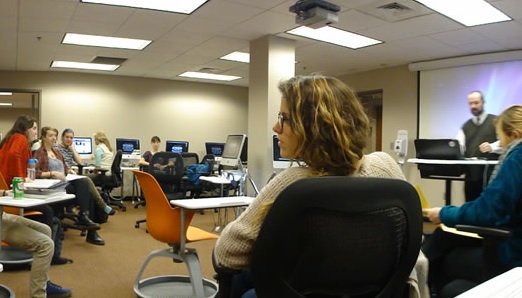
Course description
Course overview and purpose:
Peer-learning visits are a valuable tool for the professional development of staff. They build a community of trust, open up classroom practice, and provide insights into effective strategies for a wider selection of good teaching practices and partnerships.
Participants will enjoy opportunities to meet and interact with local teachers, principals and students, to discover educational institutions and their school culture at various levels (primary, secondary, vocational, adult lifelong-learning, etc.), and experience a powerful and unique networking modality that will facilitate change and learning in a friendly forum through discussion.
Please note that this course should be included as a “Courses and training” activity in your application to Erasmus+ Key Action 1, as it is a high-quality combination of school visits, seminars, workshops, facilitated interactive discussions and self-reflections.
We will research and select a number of appropriate host schools for the visiting team and organise seminars, workshops and group activities, as well as prepare and debrief visits and presentations, andfacilitate the exchange regarding education systems, the culture of the host country, and educational topics of general interest.
Participants will have the opportunity to deliver presentations about their education system, their school, their town, their country and their ideas about future Erasmus+ projects. Ideally, school visits should foster increased sharing and learning partnerships, and potentially form reliable partnerships leading to possible future Erasmus+ projects.
Participants will learn from each other and share best practice and ideas beyond the classroom so the impact can be felt school-wide and internationally!
Dates and location may be subject to amendment according to the school calendar year of the country visited. Changes might be needed to make up for time lost due to unforeseen or changing circumstances which might be out of the reasonable control of the receiving organisation.
Learning outcomes:
- Share good teaching practices
- Learn about educational organisation and management of learning in different countries
- Observe what works in other schools
- Discuss the nuances of the host school’s design and implementation
- Acquire new knowledge about the school-improvement processes





















